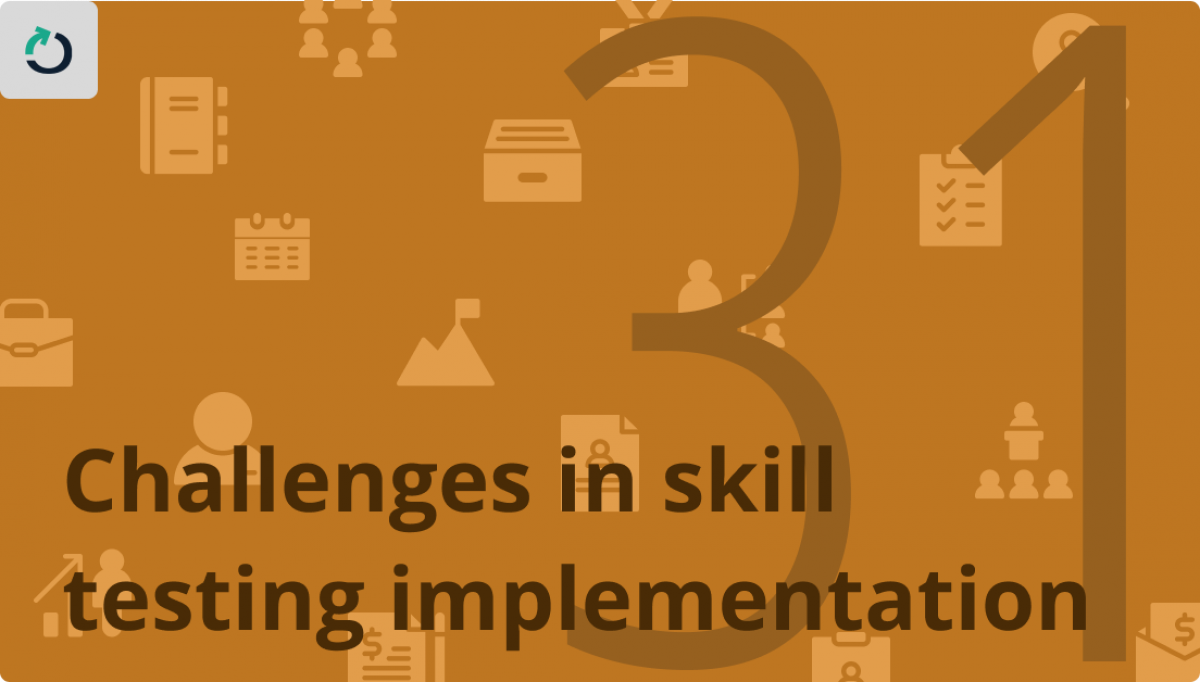Pre-hiring skill assessments are increasingly being implemented into the hiring process, as they have the potential to help employers make more informed hiring decisions and create a more productive and engaged workforce. However, implementing pre-hiring assessments comes with its own set of challenges.
One of the primary challenges in implementing pre-hiring assessments is selecting the right assessment tools. With a plethora of assessment tools available, each with their own strengths and limitations, it can be challenging for employers to determine which assessments are most appropriate for their needs. For instance, cognitive ability tests can measure a candidate's problem-solving and analytical skills, while personality assessments can evaluate their behavioral traits and preferences. Thus, employers need to be mindful of the assessment tools that best align with the job role they're hiring for. At Merreo, we always advice our users for choosing the right tests for the role they are hiring for.
In addition, it is crucial to ensure that the assessments are fair and unbiased. Pre-hiring assessments that are biased against certain groups of people, such as women and minorities, could lead to discrimination and legal issues. A study published in the Journal of Applied Psychology found that some cognitive ability tests may have a gender bias, as they are more predictive of the performance of men than women (Journal of Applied Psychology, 2017). Employers must ensure that their assessments are unbiased and do not discriminate against any candidate.
Furthermore, ensuring that the assessments are valid and reliable is equally important. Validity refers to the degree to which an assessment measures what it is intended to measure, while reliability refers to the consistency of the assessment results over time. If an assessment is not valid or reliable, it may not accurately predict job performance or lead to consistent hiring decisions. Employers must carefully evaluate the validity and reliability of their assessments and ensure that they are regularly reviewed and updated as necessary.
The integration of pre-hiring assessments into the hiring process is another challenge. Pre-hiring assessments should be used as part of a comprehensive hiring process that includes interviews, reference checks, and other evaluation methods. Employers need to ensure that the assessments are integrated into the hiring process seamlessly and that all relevant stakeholders are involved in the decision-making process. A recent survey conducted by HR.com found that only 38% of employers were very satisfied with their current pre-hiring assessment strategy (HR.com, 2021). This highlights the need for employers to implement pre-hiring assessments in a more streamlined and integrated manner.
Resistance from candidates is another challenge that can arise when implementing pre-hiring assessments. Candidates may be reluctant to take assessments, particularly if they perceive them as invasive or unnecessary. Employers need to communicate the purpose and benefits of the assessments effectively and ensure that candidates understand the assessment process. Incentives or rewards may also be offered to encourage candidates to participate in the assessments.
Despite the challenges, pre-hiring skill assessments have proven to be effective in reducing employee turnover. According to a study conducted by LinkedIn, organizations that use pre-hiring assessments are 36% less likely to experience employee turnover (LinkedIn, 2021). Additionally, the study found that companies that use pre-hiring assessments have a higher percentage of employees who are top performers, compared to those that don't use assessments. These findings suggest that pre-hiring assessments can lead to a more productive and engaged workforce, which can ultimately benefit the organization in the long run.
Another significant advantage of pre-hiring assessments is their ability to minimize the cost and time spent on hiring. Traditional hiring processes that rely solely on resumes and interviews can be time-consuming and expensive. On the other hand, pre-hiring assessments can help to streamline the hiring process and reduce the time and cost involved in hiring. A study by IBM found that pre-hiring assessments helped reduce the hiring cycle by 26% and resulted in a 70% reduction in cost per hire (IBM, 2021).
In conclusion, pre-hiring skill assessments are an effective way to make informed hiring decisions and create a productive and engaged workforce. However, implementing them into the hiring process can present challenges such as selecting the right assessment tools, ensuring that they are fair and unbiased, validating and reliably assessing the candidates, integrating them into the hiring process, and overcoming candidate resistance.
To overcome these challenges, employers must evaluate the validity, reliability, and fairness of their assessments, communicate the purpose and benefits of the assessments effectively to candidates, integrate them into their hiring process, and provide incentives for candidates to participate.
Despite these challenges, pre-hiring skill assessments have been shown to be effective in reducing employee turnover, resulting in a more engaged and productive workforce. They also minimize the cost and time spent on hiring, resulting in reduced hiring costs and faster hiring cycles.
Employers should, therefore, embrace pre-hiring skill assessments as part of their hiring process to make informed decisions and create a productive workforce. By doing so, they can improve the quality of hires, minimize the cost and time spent on hiring, and ultimately contribute to the overall success of their organizations.





